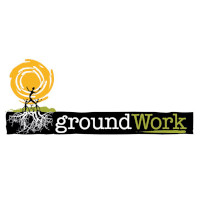The post COP29 must Prioritize Africa’s Just Energy Transition and Climate Justice appeared first on groundWork.
Press Release
COP29 must Prioritize Africa’s Just Energy Transition and Climate Justice
In 2024, Africa has faced some of the most devastating climate events in recent history, reinforcing the need for action at COP29
s Africa endures some of its worst climate impacts to date, the world must acknowledge that COP29 is an urgent crossroads. Across the continent, record floods, droughts, wildfires, and cyclones are not only devastating communities but also signalling that the current global approach to climate action is failing those on the frontlines. Africa contributes just 3% of global carbon emissions, yet its communities are shouldering an outsized share of the climate burden.
In 2024, climate disasters have taken a harsh toll across the continent. Flooding in Eastern Africa displaced over 1.5 million people, Cyclone Batsirai left millions in Madagascar and Mozambique in dire conditions, and wildfires in North Africa are ravaging ecosystems and agricultural land, and displacing communities. Meanwhile, prolonged droughts in the Sahel and conflict-driven famine in Sudan have created a humanitarian crisis for over 20 million people. The deepest injustice of it all is that while the continent contributes little to global emissions, it suffers some of the most severe consequences. The message for COP29 is clear: systemic, transformative change in global climate action and finance are long overdue.
A Just Energy Transition: Beyond Fossil Fuels to Community Power
Africa’s energy future should centre on renewable, democratic, community-led solutions. Solar and wind energy hold immense potential for the continent, yet investment remains low. Over 600 million Africans still lack access to electricity, while fossil fuel projects like the East African Crude Oil Pipeline (EACOP) expand at the cost of communities and ecosystems. COP29 must phase out fossil fuel projects and redirect investment toward locally owned, renewable energy systems that serve African people, not corporate profit.
We need a just transition that is led by communities, ensuring that they are not only recipients of energy but also have ownership and control. Energy justice must be at the forefront, prioritising those who have long been forced to bear the costs of a climate crisis they did not cause.
Equitable Climate Finance: Addressing Debt and Fair Funding for Adaptation
Africa’s climate response is hampered by inadequate and unjust climate finance. Despite a pledge of $100 billion annually from developed countries, Africa receives only a fraction, with funds often structured as loans that deepen its debt crisis and echo colonial patterns. COP29 must secure public climate finance that focuses on the needs of peoples across the continent, adaptation, loss and damage, and renewable energy, in the form of grants, not loans. The Loss and Damage Fund may have been operationalised at COP28 but COP29 must ensure that it’s fully resourced and accessible, free from bureaucratic barriers.
Africa’s just energy transition depends on democratic integrity and accountability
Recent elections in Mozambique highlighted the need for strengthened democratic processes. Meanwhile, countries rich in natural resources see little benefit due to governance challenges and corporate profiteering. In the Democratic Republic of Congo, mineral exploitation, particularly of cobalt and lithium critical for global renewable energy supply chains, has led to severe human rights abuses. Communities endure displacement, health hazards, and environmental degradation at the hands of corporations. African resources must serve African people.
Corporate accountability is equally vital. Global demand for minerals essential to the renewable energy transition has driven severe exploitation in African regions, often involving human rights abuses and environmental degradation. COP29 must champion mechanisms that hold corporations accountable, ensuring that human rights and environmental standards are adhered to. Extractive projects must prioritise local ownership, benefiting African communities rather than perpetuating patterns of exploitation.
Empowering Women, Youth, and Indigenous Peoples
omen, youth, and Indigenous communities are disproportionately affected by climate change yet play pivotal roles in advancing resilience and adaptation. Women, particularly in agriculture, are often the first to respond to climate impacts, while youth are at the forefront of climate activism. Indigenous communities, custodians of ecosystems across Africa, have invaluable knowledge on biodiversity conservation, sustainable land use, and climate resilience. However, they are often excluded from climate discussions and threatened by large-scale projects.
COP29 must ensure these groups have a central voice in decision-making, with financing for capacity-building and must recognise and protect Indigenous rights, their land and their knowledge.
A Call for Climate Justice
At COP29, global leaders have an opportunity to take transformative action by prioritising Africa’s needs, voices, and sovereignty. Africa’s energy justice is inseparable from its climate justice. A renewable energy transition rooted in equity, self-determination, justice and sustainability is not only essential for Africa but also a model for the world. This shift must be supported by public and fair climate finance, technology transfer from the Global North, and a genuine respect for African sovereignty.
As the world gathers at COP29, the stakes are higher than ever. Africa is calling for action, and it is time for global leaders to respond with commitment, solidarity, and a vision for a sustainable, just future.
For media enquiries contact:
Kholwane Simelane – Africa Energy Transformation Project Coordinator, Friends of the Earth Africa.
kholwani@foei.org, +27 81 772 8843
Kevin Munyoli – Communications Coordinator, Africa Just Transition Network
acncomms@groundwork.org.za, +254 755 439875
Tsepang Molefe – Media and Communications Campaigner, groundwork
media@groundwork.org.za, +27 74 405 1257






